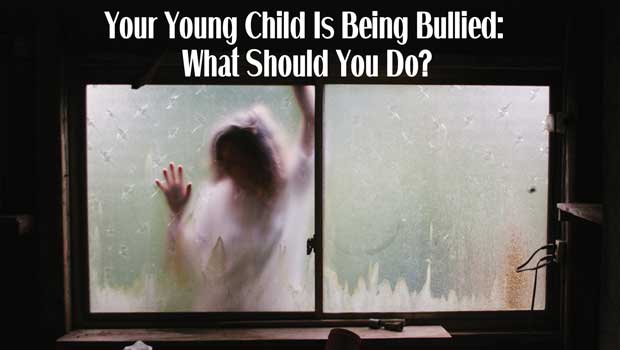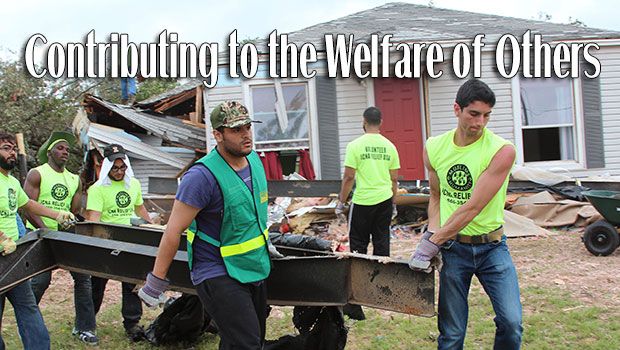Bullying happens too often in schools, both in public and Islamic schools, and parents often don’t know what to do to help their child when he or she is a victim of bullying. When a parent becomes aware that their child is being bullied, it’s very important to address the issue immediately in order to avoid the negative effects of bullying. Often times the child who is bullied lacks competent social skills, and a parent can start with that as their area of focus. Researcher Clark McKown of the Rush Neurobehavioral Center in Chicago and colleagues published the results of a recent study in the Journal of Clinical Child and Adolescent Psychology. This study showed that children with social problems were lacking competence in reading nonverbal cues, understanding the social meaning of those cues, or knowing how to resolve a social conflict.
Make sure that your home is a place where your child feels safe and secure, physically as well as emotionally. Your child should always feel that he/she can openly and honestly communicate with you. Let your child know that together you can solve any problem or handle any challenge
Studies in the past have shown that children who are subjected to bullying are likely to have problems in various other aspects of their lives. In addition to feeling unsafe, the child who is subjected to bullying feels the misery of social rejection. This can lead to poor academic performance and other more serious problems as the child gets older. Wanting to feel accepted and liked by his or her peers is extremely important to a child. Yet some children simply lack the social skills that allow them to navigate their way successfully on the playground, in groups of children playing together, or in any casual interaction with peers whether in the classroom, in the hallway, or during lunch at the cafeteria.
In the McKown study, it was found that the children with reported social problems had difficulty reading the emotions of actors in video clips and photos. The facial expression, tone of voice, and body posturing did not provide the cues that the average child could detect and interpret without difficulty. Thus it is not easy for the less socially adept child to notice a frown on another child who thinks that he is keeping the ball too long. Or a girl playing with three others may not pick up on the impatience the others are showing when she is unable to throw the ball quickly to keep their game going.
Practice Social Skills with Your Child
If you have a young child who is being bullied and you have observed that he or she struggles in social interactions, or a teacher has provided feedback that your child lacks adequate social skills, you can aid your child by practicing social skills with him or her. Remember that your child probably shies away from social situations that would provide the opportunity for him to practice basic skills with his peers. So you can provide that opportunity. You can role play with your child different social scenarios. For example, tell your child that you are going to pretend that the two of you are on the playground playing tag. Instruct your child to grab your arm and not let go instead of “tagging” you with his hand. Ask him to watch your face and tell you what your expression means. When he grabs your arm and won’t let go, make an exaggerated frown. Ask your child to tell you what the frown means and to identify what happened that made you frown. If he doesn’t understand the connection between the frown and him not following the usual rule of tagging with the hand (rather than grabbing the arm and not letting go), explain it with an another example such as “If you were playing ball and your friend kept throwing the ball over the fence on purpose, how would you feel?” Ask your child what he could do when he sees a frown on a playmate’s face. Explain that he can stop and think about his own behavior and if he is following the rules, acting in a friendly way, playing cooperatively, and so on. If he doesn’t understand why his friend is annoyed, he can ask himself, “Am I doing something the wrong way?”
You can be very creative and have a lot of fun with your child coming up with various scenarios like the one above to teach him to observe facial expressions, hear tones of voice, and see body language – and make sure he understands what this mean.
For all children, young and old, it is also very important to make sure that they have some basic guidelines as to how to respond when bullying does occur. There is a nonprofit organization that provides very practical steps that you can teach your child in this regard. Their website is www.kidpower.org. The guidelines are available at:
http://www.kidpower.org/library/article/prevent-bullying/
Providing Support for Your Child
In all cases, make sure that you are supportive of your child and that he knows he can tell you anytime about what is going on at school and anything that he is having difficulty with. Never convey the idea to your child that he should ignore the bullying or that he is somehow to blame. Make sure he knows that bullying is wrong and that it is not his fault. Let him know the Islamic teachings about mocking others, calling them names, or talking badly about other people. You can read with your child Surah Al-Hujurat, verse 11, and discuss the meaning on an age-
appropriate level:
“O you who believe! Let not some men among you laugh at others; it may be that the [latter] are better than the [former]. Nor let some women laugh at others; it may be that the [latter] are better than the [former]. Nor defame or be sarcastic to each other or call each other by [offensive] nicknames; ill-seeming is a name connoting wickedness [to be used of one] after he has believed. And those who do not desist are doing wrong.”
When your child is bullied, gently try to get him or her to talk about the bullying so that you can elicit information and details about when, where, and how it happens. Talk to your child’s teacher and, if necessary, the school principal and let them know that you want to work with them to ensure that your child is not subjected to bullying. Most importantly, make sure that your home is a place where your child feels safe and secure, physically as well as emotionally. Your child should always feel that he/she can openly and honestly communicate with you. Let your child know that together you can solve any problem or handle any challenge and that with patience and perseverance the solution will be found.
As the parent of a child who is suffering from harassment, be aware of your own feelings and do not let them run unrestrained in your desire to protect and comfort your child. Remember that this is a great opportunity to work with your child and help him or her to develop effective coping skills and assertiveness skills. Quality of life and good mental health are directly related to the awareness of one’s emotions and the ability to manage them in a healthy and productive manner; as well as the awareness of others’ emotions, and the ability to understand and respond competently to them. Ask Allah SWT to help you be patient and persevering in your efforts to help your child. Do everything in your capacity and then leave the rest up to Allah SWT.






